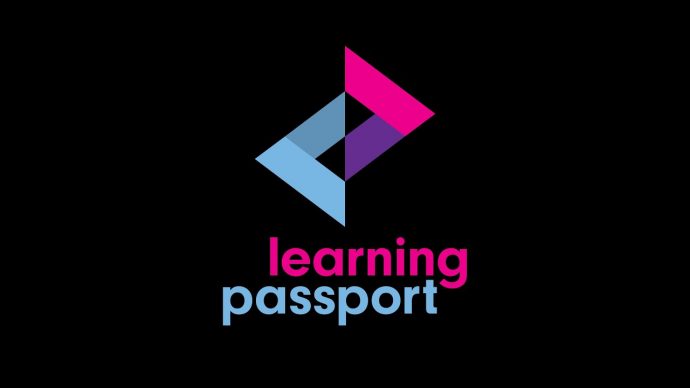
UNICEF transforms Pakistan education through The Learning Passport
Digital Innovation for Learning
UNICEF launched the Learning Passport (LP) program in Pakistan, a country where there is a big disparity between the state of the education system and its potential for transformation. The goal was to provide access to digital learning in order to solve significant equity concerns, notably for marginalized children, especially girls.
The LP program is a digital platform that enables high-quality, flexible learning. It was created by UNICEF and Microsoft as a way to bridge the learning poverty gap. This was tested in Sindh as an “education model” for middle school boys and girls (grades 6–8). The platform provides digital content that is matched to the curriculum of the Sindh Government, guaranteeing that the students’ education satisfies particular learning requirements. Every student’s individual learning history is stored in the LP, enabling tailored support to enhance their educational experiences.
Efficacy at Government Girls Comprehensive High School: A Success Story
The efficacy of the LP program was proved in the Government Girls Comprehensive High School (GGHS) located in North Nazimabad, Karachi. Dr. Shazia Syed, the principal of GGHS, says with enthusiasm, “We have found it to be very effective for our girls,” pointing out that it has a significant influence on students’ desire to attend LP lessons.
Through its contribution to closing the digital learning gap, the initiative helps students improve their academic experience. Geographical location, educational institution, and grade level all have an impact on students’ unequal access to EdTech (educational technology) in Pakistan. With only 33% of homes having internet connection, many students—especially female students—find it difficult to use learning tools.
Because of its special interoperability feature, students can access educational programs in their native tongues, promoting inclusivity and meeting their varied linguistic demands. The program presents a learning system that is not constrained by the traditional classroom by employing digital tablets. The LP stresses improving learning outcomes while reducing the digital gender gap, with 90% of its current users being girls.
Tackling Digital Learning Gaps
The pilot project first concentrated on three essential subjects—science, social studies, and mathematics—where the majority of pupils were observed to be having difficulty. Digital content was created using the Sindh Education Curriculum and was approved by the Sindh Education & Learning Department.
The LP pilot program has come a long way since it began in September 2022, including almost 4,000 children in 28 schools in Karachi, Hyderabad, Jamshoro, and Sukkur. Participating schools have received 970 tablets, and classrooms set aside for Learning Passport sessions are part of the infrastructure that supports the program’s goals. This becomes especially crucial for schools with outdated computer technology or those without traditional computer laboratories because of financial limitations or insufficient internet access.
Students use tablets to access digital content that is in line with their course curriculum during supervised sessions. Weekly topics are covered in Scheduled Learning Passport sessions. After completing modules, students work with teachers to navigate via interactive games, educational videos, and evaluations. These built-in resources, which include online surveys and tests, assist teachers in monitoring progress and identifying strategies to foster students’ academic development by evaluating student performance.
Educator Perspectives and Peer Learning
At GGHS, Muniba Khan is a committed math instructor who highlights the benefits of the curriculum. “Now that the girls’ concepts are more apparent, I can teach them more easily. “They can take their time watching the video, go over it again, and ask questions if they have any questions,” she says.
In addition to having a well-organized curriculum, the Learning Passport program’s wide selection of multimedia tools enable it to effectively dissect difficult learning objectives into manageable parts. In addition to fostering peer-to-peer learning, the LP’s methodology gives students the freedom to learn at their own speed, fostering a sense of independence and self-directed learning.
Thirteen-year-old Kashaf is one of the program’s success stories. Speaking from personal experience, Kashaf says, “Multimedia presentations on tablets help us learn.” The activities and films are entertaining, and they aid in our understanding of ideas.”
She finds the program more fascinating than traditional chalkboard lessons and loves its flexibility. Her learning has improved when she pauses videos and asks for clarification right away.
Access Beyond the Classroom
With the help of the Learning Passport initiative, students can access educational resources from home as long as they have internet access. This encourages individual study and helps UNICEF use assessment data to gauge learning outcomes.
Teacher Involvement and Future Prospects
Teachers at GGHS are ecstatic that the pilot program has been incorporated into the curriculum since they have seen a good effect on students’ learning. They are keen to see it continue and suggest adding English in line with the aspirations of parents and students for greater options and a more fulfilling educational experience.
The development of a training program for lead trainers who can provide ongoing support to public school teachers—including a digital certification for implementing the LP and the availability of email or WhatsApp support channels for teachers—is one of the lessons learned from the Learning Passport pilot.
Closing the Gender Gap: A Beacon of Hope
It’s clear that this program represents a ray of hope for closing the gender gap in technology. Given its effectiveness, more money and wider acceptance are needed to take it beyond Sindh and imagine a time when such cutting-edge educational initiatives improve public schools all over Pakistan.

Content writer, educationist, teacher, researcher, social media manager, and a SEO manager from lahore. She has been working as a freelance academic and non-academic writer for more than 20 years now. She has a passion to learn new things and has a knack for writing and she combines both things to produce write ups she pours her heart out in.

